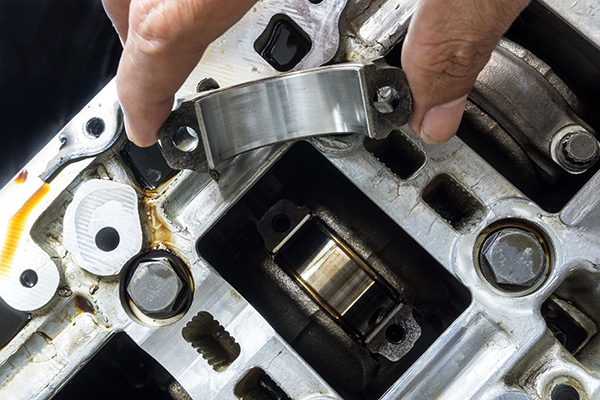
The BMW S54, S65, and S85 engines are known for their high-revving performance and motorsport-inspired engineering. Found in iconic models like the E46 M3, E90/E92 M3, and the E60 M5, these engines are among the most exciting ever produced by BMW. However, they also share a common weakness that every enthusiast and owner should know about: rod bearing failure.
If you own a car with one of these engines, rod bearing replacement isn’t just a recommendation—it’s considered essential preventive maintenance. Ignoring it can result in catastrophic engine damage and one very expensive repair bill.
What Do Rod Bearings Do in the Engine
Rod bearings sit between the crankshaft and the connecting rods. Their job is to provide a low-friction surface that allows the rods to rotate smoothly around the crankshaft as the pistons move up and down. These bearings are constantly subjected to extreme forces, especially in high-performance engines that rev well past 8,000 rpm.
When the bearings start to wear, metal-to-metal contact can occur. That leads to scoring on the crankshaft, oil pressure loss, and eventually, full engine failure.
Why These BMW Engines Have Bearing Issues
BMW designed the S54, S65, and S85 engines with tight tolerances and very specific oiling systems. Unfortunately, the stock bearings in these engines are relatively soft and prone to accelerated wear over time. Combine that with long oil service intervals, high RPM usage, and aging vehicles, and you have the perfect conditions for premature bearing failure.
In some cases, bearing wear shows up as early as 60,000 to 80,000 miles. It doesn’t always matter how gently the car was driven either. Even low-mileage examples can suffer if the bearings haven’t been replaced or if oil changes were neglected.
What Happens When Rod Bearings Start to Fail
Early signs of rod bearing wear can be hard to detect. Some drivers report a subtle ticking sound when idle or under load, while others don’t notice anything until it’s too late. As the bearings wear down, small metal particles can end up in the oil, which causes additional wear throughout the engine.
If failure occurs, you might hear a loud knocking noise, see the oil pressure light come on, or experience engine seizing. At that point, repairs usually require a complete rebuild or replacement of the engine, which is why proactive bearing replacement is so important.
The Importance of Preventive Replacement
Replacing rod bearings before they fail is far less expensive than dealing with the damage they can cause. This service involves removing the oil pan, dropping the connecting rods, and installing new bearings and bolts. Many shops also check the crankshaft for scoring or uneven wear and polish it if necessary.
When done correctly, replacing the bearings extends the life of the engine and provides peace of mind, especially if you plan on enjoying the full potential of your M car.
Choosing the Right Bearings and Shop
Not all rod bearing kits are the same quality. Some aftermarket options use upgraded materials or coatings to better handle high-performance stress. Paired with the right torque specs and fresh ARP rod bolts, these upgrades can provide better protection than the factory setup.
Just as important is choosing a shop that knows these engines inside and out. Chicane Motorsport specializes in performance BMW service, and we've handled rod bearing jobs on countless S54, S65, and S85 engines. We use the right tools, techniques, and parts to get the job done right the first time.
Chicane Motorsport – BMW M Engine Experts in Olathe, KS
At Chicane Motorsport, we don’t just service M cars—we understand them. If your BMW is powered by an S54, S65, or S85 engine and the rod bearings haven’t been replaced yet, now is the time to act. Avoid costly repairs later by scheduling a preventative rod bearing service with a team that knows exactly what your engine needs.